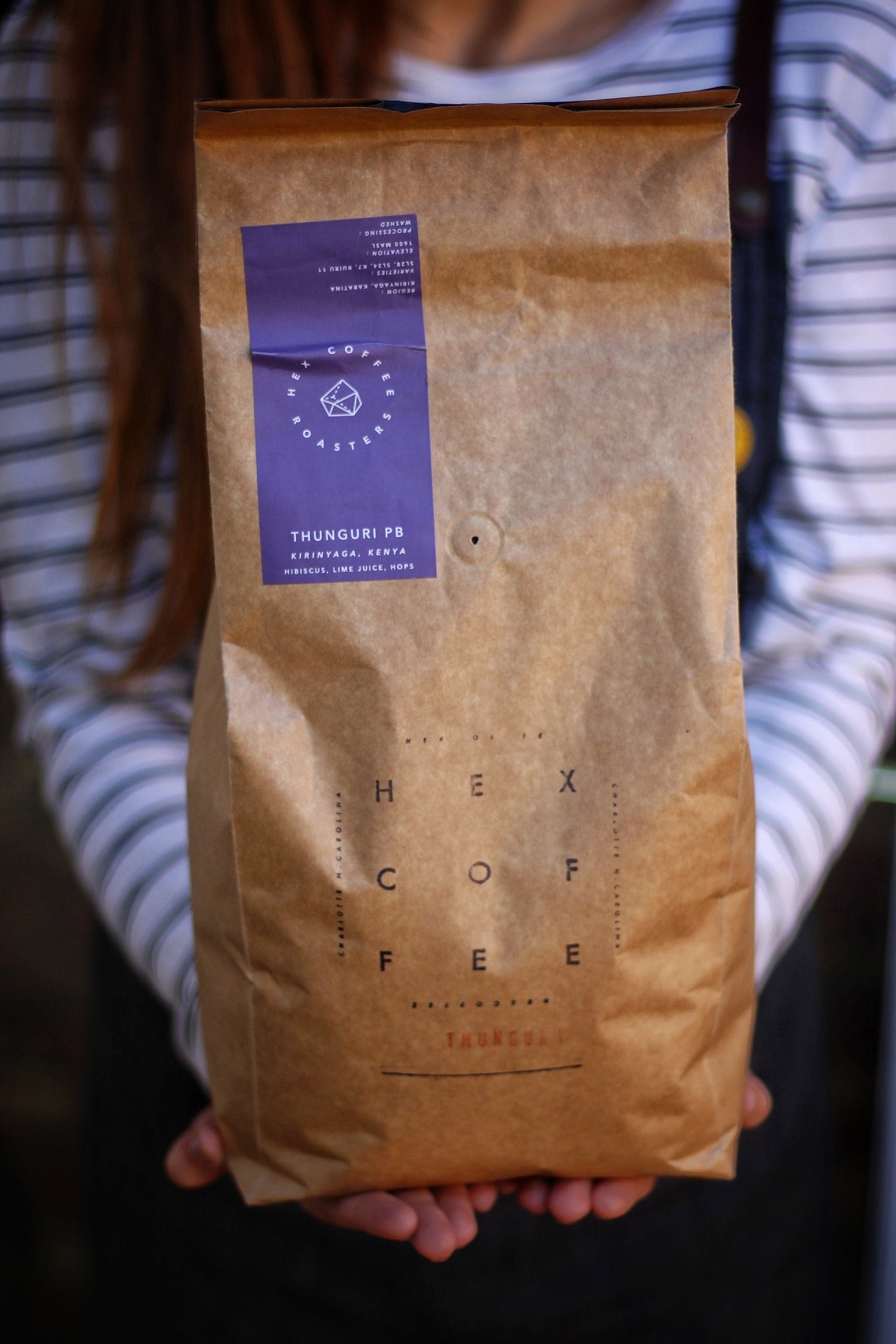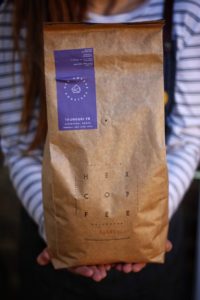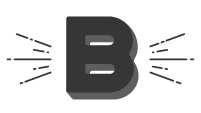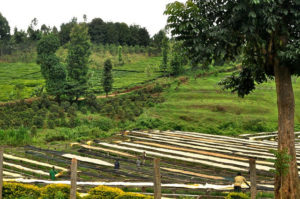
Thunguri PB
Our third feature from Hex Coffee is one that is starkly different from any other we’ve had thus far. Thunguri PB is a Kenyan coffee (specifically a PB—more on that later) with tasting notes of hibiscus, lime juice, and hops. Kenyan coffees are known for their powerful aromas, flavors reminiscent of sweet 
Kenyan coffees are sorted with screens and codes that differentiate them according to size and coffee quality. The three codes are AA, AB, and PB. AA is the largest, with AB following in second, and PB coming in last. PB stands for “pea-berry,” meaning that instead of growing two seeds inside the coffee cherry, it only grew one. This allows the seed to grow freely, as opposed to struggling for space within the cherry. The seed can then develop into a completely round shape, akin to a pea, and is, in the opinion of some roasters, more idealistic for roasting.
Hex’s coffee importer said this in reference to Kenyan’s screens and codes:
“In Kenya, a ‘coffee lot’ is made from a bigger batch of coffee that is delivered to the dry-mill from a cooperative on a given day. When a coffee batch arrives at the mill, it is processed (hulled), analyzed (technically and sensorially), screened (separated due to bean sizes), and given an outturn-number. While the parchment is taken off the beans in the hulling process, the beans are screened and separated due to shape and size.
AA’s are flat with screen size 17+. AB’s are flat with screen sizes 15 and 16. PB’s are pea-berries. There are always a certain percentage of lower grades too.
Screen size does not necessarily correlate with quality in terms of flavor attributes. For example, sometimes we find many of the AB selections to be superior to the AA’s from the same lot. In addition, it is not true that PB’s are necessarily more intense in flavor or better in quality than flat beans.”
Many people believe that AA’s are superior to AB’s in quality and taste; however, much of the difference truly lies in the harvesting year, the processing method, and the many other variables that come along when growing coffee.
The Kenyan coffee market is segmented into different cooperatives. Since most Kenyan coffee producers are “smallholders,” their total volume of coffee might be, at most, a few bags. That means that potentially hundreds of farmers that live in the same area are more than likely members of the same cooperative, which stands to market and sell coffee on behalf of the community. There are usually several different processing and washing stations (or “factories”) that these smallholders deliver their coffee cherries to. In the case of Hex’s Thunguri coffee, there are about 800 cooperative members that deliver their cherries to the factory. Each member averages about 100 coffee trees per farmer/family. They deliver their cherries to the Thunguri factory to be washed, dried, and sorted. Thunguri, in particular, has hundreds of raised drying beds that allow for efficiency and haste during the harvest season’s peak.
Each cooperative is a democratically run organization where these smallholders (or producers) act as both members and representatives of a specific governing board. The governing board has a few different functions, the main being to nominate a marketing agent. The marketing agent’s sole job is to retain a license to sell the cooperative’s coffee at the highest possible price they can. While Kenyan coffee is normally sold at auction, there are opportunities for the coffee to be sold for a higher price to direct consumers. It is situations like those where importers (in this case, the importer that Hex uses) come into play.
Cooperatives and marketing agents advocate for selling directly to customers at the highest possible price because it automatically encourages recognition for the hard work that quality-minded farmers and factories put into the coffee. They are also producing quality coffee, and they want to ensure that their prices are in line with coffees being sold at auction that are of similar or equal quality levels. Most of the best Kenyan coffees are sold directly to the customer, which is only possible if the customer is present when the coffee is coming directly from the mill.
Kenyan coffees are truly known and set apart by their acidity. It bodes well to import Kenyan coffee quickly so that roasters can roast it fresh and pull as much acidity from the coffee as they desire.
Thunguri PB is truly a delicious, unique coffee that deserves to be savored and enjoyed. It is now available on both drip and espresso. We hope you come in soon for a taste!


